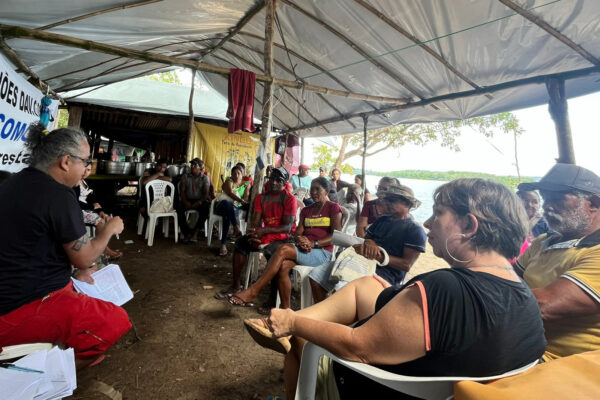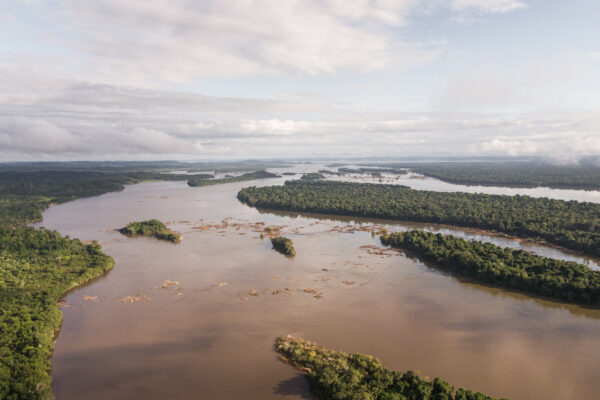Brasilia, Brazil – In yet another turn of events in the increasingly heated legal and political battle over the controversial Belo Monte dam complex, on Thursday the president of a federal regional court in Brasilia, Olindo Menezes, overturned a decision by federal judge Ronaldo Destêrro that prohibited initial construction to commence on the mega-project – slated to be the world’s third largest dam – along the Xingu river in the heart of the Brazilian Amazon.
“There is a real danger that bureaucratic delays and procrastination in the Brazilian legal system may contribute to Belo Monte becoming a fait accompli, which would be a death sentence for the Xingu and its people,” said Brent Millikan, Amazon Program Director at International Rivers.
The earlier decision by Destêrro, issued on February 25th, was provoked by a civil lawsuit filed by the Federal Public Prosecutor’s office. The lawsuit argued that the federal environmental agency, IBAMA had acted illegally in issuing a “partial installation license” – non-existent under Brazilian law – to allow construction to begin on access roads, industrial parks and worker encampments at two sites of the Belo Monte dam complex. The lawsuit noted that the majority of social and environmental pre-requirements for dam construction to begin, such as health, education and sanitation infrastructure in urban areas and demarcation and protection of indigenous lands, had not been complied with by the Norte Energia (NESA) dam-building consortium, headed by parastatal energy company, Eletrobras.
In his decision, regional judge Menezes used a legal artifice (“suspensão de segurança“) that dates to the military dictatorship of the 1970s, allowing for previous decisions to be overturned without considering the merits of the case, based on arguments of supposed threats to national security. According to Menezes, there is no need for full compliance with conditionalities of a first phase environmental license for “initial installations” of Belo Monte to begin.
The Public Prosecutor’s Office stated that the decision by Menezes was reckless and, if upheld, will lead to irreparable damage to the environment and population of the Xingu region. According to public prosecutor Felicio Pontes, “in all phases of the licensing process, the federal government has disrespected the Brazilian constitution and environmental laws. IBAMA has ceased to be a technical agency and today cedes to political pressures, becoming the main party responsible for deforestation in the Amazon.” According to the Public Prosecutor’s Office, the beginning of dam construction at Belo Monte may provoke chaos in terms of social infrastructure in the region of Altamira. It is estimated that 8,000 people have already migrated to the city of Altamira in search of employment at the dam site. The federal government estimates that a total of 100,000 people will migrate to the region as a consequence of Belo Monte, and that some 32,000 will remain after construction is completed.
In response to the decision by the regional judge, the Movimento Xingu Vivo para Sempre (MXPVS), a coalition of indigenous people, social movements and other civil society groups opposed to the Belo Monte dam, stated “How can this government call itself democratic and popular while resorting to subterfuges created by the military dictatorship?” According to MXVPS coordinator Antônia Melo, “the decision by the regional court judge is scandalous, but there will be a reaction from social movements and others that defend the rule of law.”
The Public Prosecutors Office has already announced that it will appeal the decision by Menezes. Nine other lawsuits regarding the Belo Monte dam complex are also pending.
The risky $17 billion Belo Monte Dam will divert nearly the entire flow of the Xingu River along a 62-mile stretch. Its reservoirs will flood more than 120,000 acres of rainforest and local settlements, displace between 20,000 and 40,000 people and generate vast quantities of methane—a greenhouse gas at least 25 times more potent than carbon dioxide.













